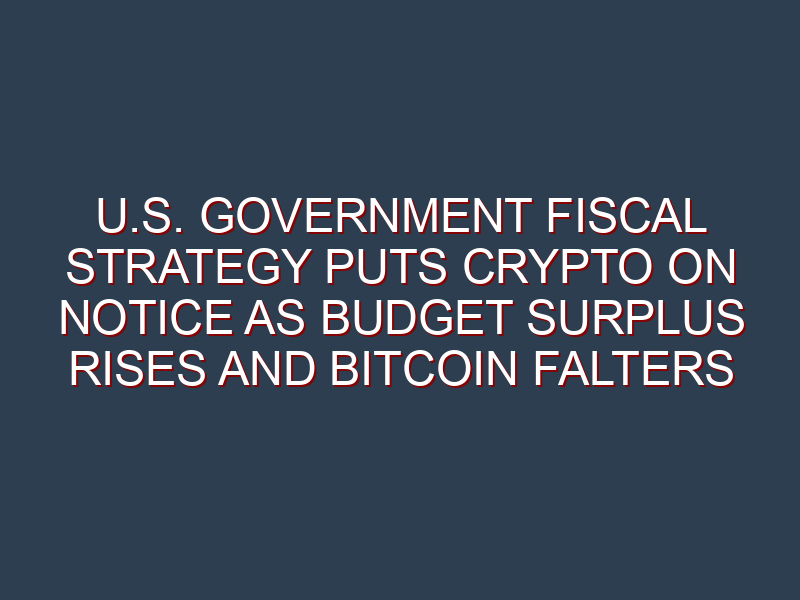Washington’s Fiscal Playbook: Record Surplus Sends Political Message
September’s historic budget surplus didn’t just turn heads on Wall Street — it signaled a resurgent confidence in Washington’s ability to steer the economic ship. As the U.S. Treasury Department announced stronger-than-expected fiscal results, the timing couldn’t be more politically charged. With election season drawing near and debates raging about the future of both traditional finance and digital assets, the latest numbers are a powerful talking point for policymakers.
For many in Washington, this surplus offers a much-needed reprieve from years of partisan squabbling over government debt. At a moment when the U.S. Treasury is working overtime to fund vast policy initiatives, the political capital delivered by a budget surplus can’t be overstated. Lawmakers on both sides of the aisle now have fresh ammunition to argue over spending priorities—particularly as the White House faces mounting pressure to demonstrate fiscal discipline.
Bitcoin Stumbles: A Convenient Contrast for Regulators?
As the federal government celebrates fiscal strength, Bitcoin’s ongoing price struggles are putting crypto markets on uncertain ground. This stark contrast isn’t lost on regulators and policymakers in D.C., many of whom have long pointed to the volatility of digital assets as evidence of the need for stricter oversight.
The surplus gives crypto skeptics a narrative boost: As federal finances improve, they argue, why trust an unregulated and often unpredictable financial ecosystem? This argument is likely to resurface in upcoming hearings before agencies such as the U.S. Securities and Exchange Commission (SEC) and the Commodity Futures Trading Commission (CFTC), where debates over stablecoins, digital asset exchanges, and investor protections dominate the agenda.
Regulatory Pressure Mounts: Policymakers Eye Crypto with Renewed Scrutiny
With fiscal responsibility now part of Washington’s political brand, expect a ramp-up in calls for crypto accountability. Lawmakers sympathetic to the technology may find it harder to justify light-touch regulation when the traditional financial system is outperforming crypto on stability, at least in the eyes of the public and the press.
Meanwhile, agencies like the SEC are likely to cite market struggles as further justification for advancing regulations on everything from token classifications to anti-money laundering protocols. These moves, while couched in consumer protection, play into broader political maneuvers to reinforce U.S. authority over the rapidly evolving digital asset landscape.
The Road Ahead: Political Stakes for Crypto and Fiscal Policy
The ripple effects of September’s surplus are more than economic; they’re inherently political. As Washington basks in newfound fiscal strength, crypto assets face a double-edged sword: heightened scrutiny and shrinking political cover. How the federal government leverages its fiscal momentum in policy debates could reshape the regulatory environment for digital currencies for years to come.
For market watchers, this moment reflects more than numbers on a ledger—it’s the opening act for a new phase in the political contest between traditional finance and cryptocurrency innovation. The pace and direction of new regulations will tell us whether policymakers view crypto as an opportunity or a threat on the road to fiscal stability.





